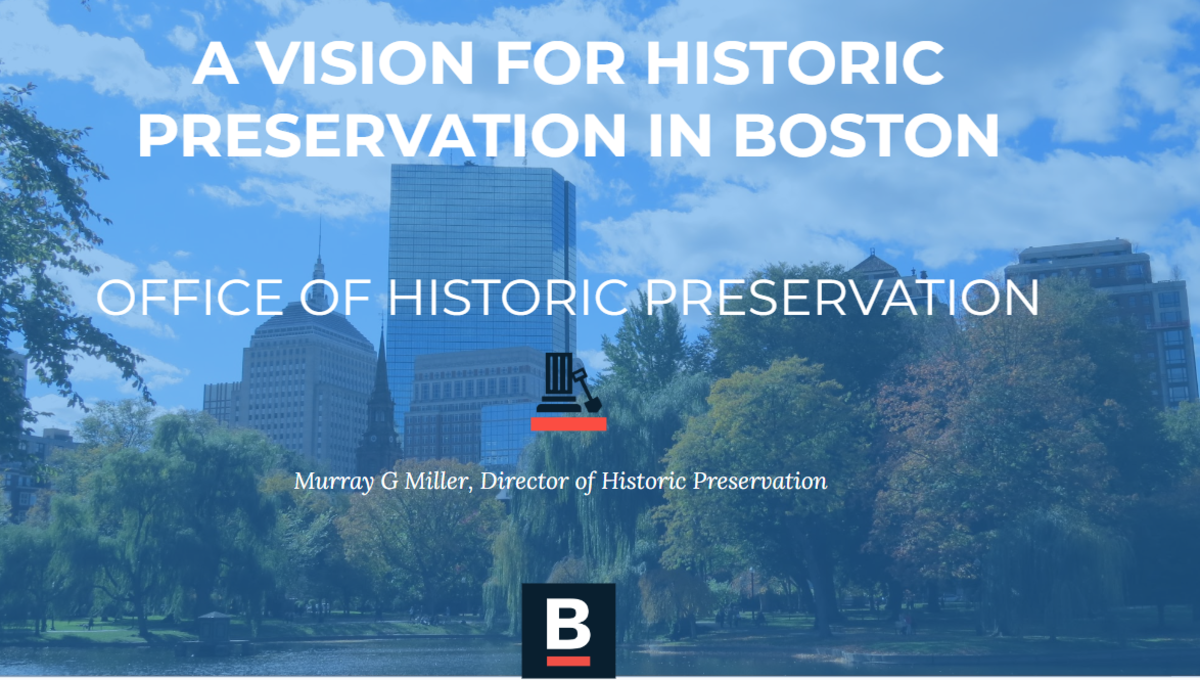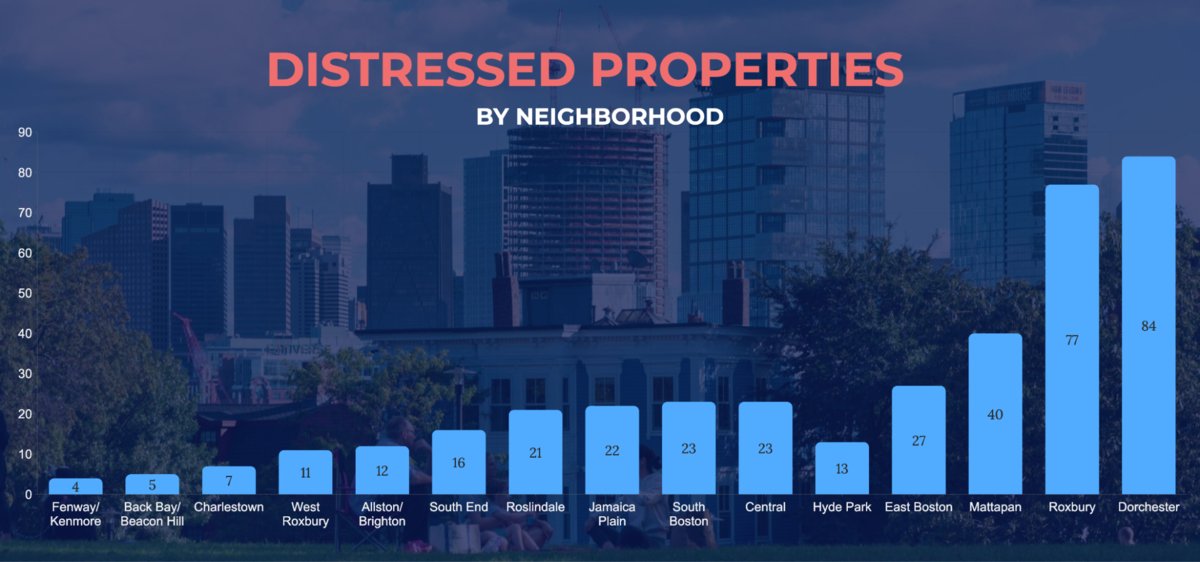Office of Historic Preservation Announces Its Vision For The Future of Preservation in Boston
After the creation of an independent Office of Historic Preservation in 2022 by Mayor Wu, an early order of business was to incorporate an inclusive and honest account of Boston’s history that would inform an aspirational vision for historic preservation.
Such a vision would rely upon a deep commitment to centering racial equity and justice around historic preservation in Boston and it would consider creative and bold initiatives that acknowledged the great work that has been done with a view towards the critical challenges that are now upon us. Critical challenges that have the potential to impact the historic environment and that could be mitigated by the way in which we think about, prioritize, and practice historic preservation. For more than a half century, the practice of historic preservation at the local level across the nation has and continues to focus largely on landmark designation and processing applications for certificates of appropriateness. This focus has undoubtedly saved, sustained, and mitigated the challenges associated with stewardship that exposed the historic environment to deterioration, threats, and change. We still have these challenges - and there is evidence that today’s challenges are even greater.
Greater societal shifts now encourage us to examine the potential alignment of historic preservation practices with racial equity and justice. Understanding the places, events, and people that contribute to telling a more complete story of Boston requires investment of time and resources, which could be reflective of a deep commitment to racial equity and justice. As a tangible strategic priority, the Vision for Historic Preservation in Boston acknowledges that understanding is often facilitated by undertaking and updating historic resource surveys.
Historic resource surveys are of critical importance, not only to preservation planners, but for any informed land-use decision, including how demolition delay processes might be designed to achieve best practice environmental outcomes, how they are necessary for comprehensive planning and zoning reform, and how they can provide information that is important in telling the full story of Boston.
A key strategic priority of the Vision includes updating and streamlining historic preservation regulations, practices, and procedures that in turn could support an investment of “time and resources” towards advancing important initiatives. The two legs of the Vision are:
- uplifting underserved communities, and
- mitigating the adverse effects of climate change
In many ways, these two legs are an acknowledgement that the practice of historic preservation can no longer succeed in isolation by simply valuing heritage assets and regulating change of the physical fabric of a relatively exclusive community.
Uplifting underserved communities could begin with undertaking historic resource surveys in areas that have not been surveyed. This could be followed by sharing untold stories about events, people, and places that are important to the community. Other forms of investment might include incentivizing the repair of older and historic properties in places where data already shows the largest percentage of distressed single-family homes - making these places more climate resilient, while maintaining affordable housing options, and mitigating the risks associated with displacement.
Mitigating the adverse effects of climate change could include incentivizing the use of embodied energy that already exists in older and historic structures while embracing new development that would leave a smaller carbon footprint than the standard approach that may include demolition and new construction without commensurate regard for environmental stewardship.
The Vision therefore leans towards an equitable and sustainable practice for historic preservation in Boston as it keeps an eye on the 250th anniversary of the nation in 2026 and the subsequent 400th anniversary of Boston in 2030. It acknowledges challenges and opportunities such as climate change, affordable housing, civil unrest, development pressures, and the need to integrate all aspects of economy, environment, society, and culture for positive outcomes.
The Vision recognizes the clear signals that we must push forward with deliberate thoughtfulness and impactful strategies, as seen through an equity lens. It suggests creative and bold initiatives that would position the practice of historic preservation in Boston to be nationally known for its transformative efforts to uncover, share, and preserve local stories of the city’s rich history, advancing environmental stewardship, and uplifting underserved communities for the benefit of present and future generations.
On November 16, 2023, A Vision for Historic Preservation in Boston was shared at a public gathering in Roxbury and it received positive feedback. In the coming months, we will continue to share the vision presentation and seek community feedback. It is our hope that some of the transformative efforts might be elevated in time for the nation’s 250th anniversary. It is our hope that one of the nation’s most historic cities will seize this tremendous opportunity.




